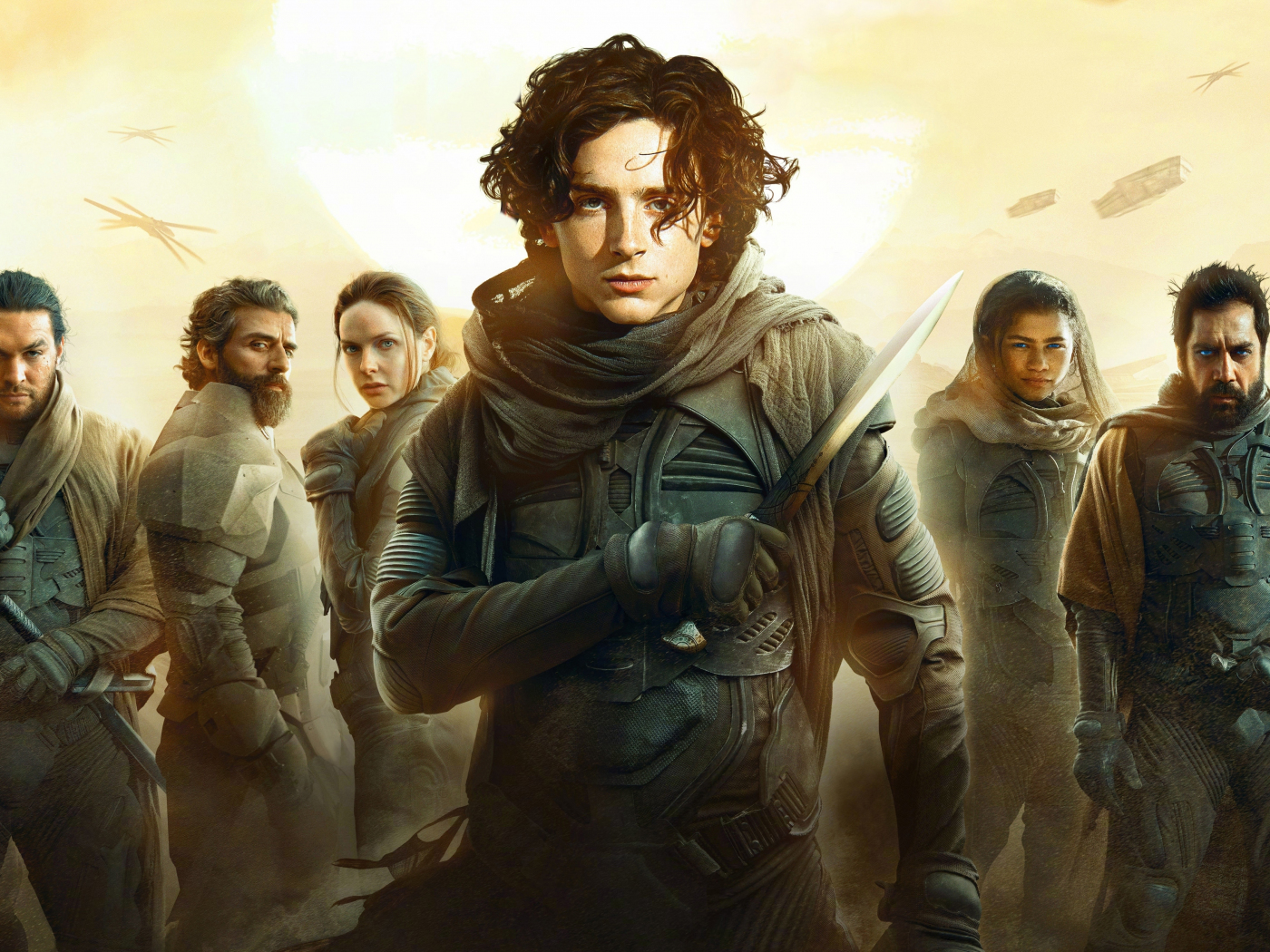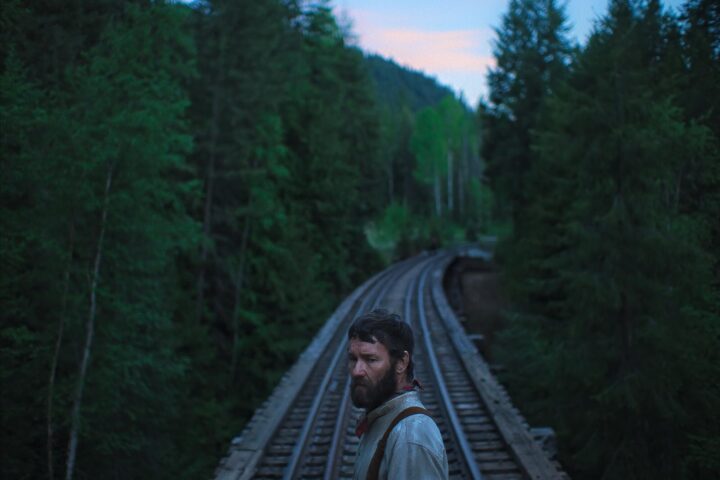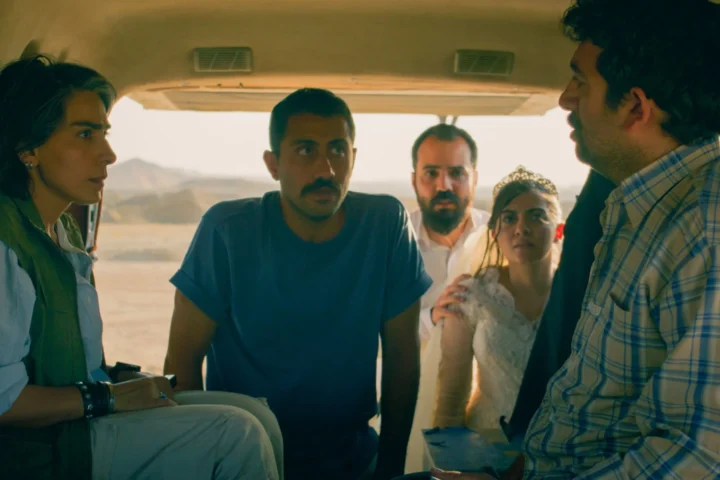Frank Herbert’s Dune, the densely packed 1965 sci-fi opus commonly regarded esoteric but for its true believers, has frequently been referred to as “unfilmable.” This notion was tested on the 1984 release of David Lynch’s (in)famously reviled effort, a near-academic visual and aural fever dream concerned less with coherence and more with a defiant, hallucinatory weirdness that has, over time, rewarded cult enthusiasts. It’s a property that even got the better of legendary Mexican filmmaker Alejandro Jodorowsky, who struggled mightily with his own unfinished movie vision in the 1970s.
On the arrival of Denis Villeneuve’s much delayed and hotly anticipated new adaptation, a massively scaled machine that promised to be both definitive Herbert and a corrective to Lynchian sins, it turns out that bigger wasn’t necessarily better in a gargantuan physical production that builds its worlds, slowly and meticulously, but never offers a reason for us to care.
Reportedly a long-time favorite property of the talented Canadian director behind such terrific pictures as Incendies, Prisoners, Arrival and some of Blade Runner 2049 (I less admired his Sicario), one wonders how (and why) a budget of $170 million was greenlit for this new version, given that Dune by nature is not exactly audience entertainment or whiz-bang franchise sci-fi, almost certainly too brainy for the multiplex and has, in any version, always catered to a highly specialized audience.
A byzantine space opera of warring intergalactic families, a desert planet harvesting a coveted, endemic substance, an oppressed people guarding this valuable resource and a messiah to deliver them in, ostensibly, a parable about colonization, Dune is deep think sci-fi so steeped in its own unique vernacular that in lieu of background material (I recall theaters once handed them out for Robert Altman’s Gosford Park to aid viewers in untangling its assortment of upstairs-downstairs characters) or a pocket glossy for terms like “Bene Gesserit,” “gom jabbar,” “Muad’Dib” and “kwisatz haderach,” most will be scratching their heads by the end of the first reel. Herbert afficionados may give themselves over to Villeneuve’s vision, but the majority will tune out.
And one should not advocate for the dumbing down of Herbert’s richly opaque material, which Villeneuve and company have left largely intact in a movie that feels epic, enveloping and appropriately colossal in design. Movies are, after all, a visual experience and on that level Dune should expectedly clean-up a bevy of below-the-line technical Oscars from costumes to production design to special effects. Yet a compelling story is another matter. This Dune, for all its filmmaking ingenuity, is missing a heart.
A shorthand description of the plot would begin in the far-off future of 10, 191, some twenty thousand years from now, involving a pair of sparring royal houses and the coveted world between them. Planet Caladan is ruled by Duke Leto Atreides (Oscar Isaac), whose House Atreides includes regal, bound concubine Lady Jessica (Rebecca Ferguson) and son Paul (Timothée Chalamet). House Harkonnen lies on planet Giedi Prime and is the domain of the sadistic Baron Harkonnen (Stellan Skarsgaard), photographed here with such grotesque beauty the imagery ranks with the year’s best.
On distant desert planet Arakis lies the most valuable substance in the universe, a spice germane to its topography, harvested from beneath its sand. This spice, a powerful hallucinogenic, allows one to “fold” space, which basically means to travel light years very quickly—hence its value as the galaxy’s hottest commodity.
At the emperor’s command, House Atreides is to replace House Harkonnen as the planet’s resident guardian. Arakis is also home to a desert tribe of fierce warriors with radiant blue eyes, named Fremen, and a species of gigantic worms, thousands of feet long, burrowed beneath its surface. The worms can detect even the softest footfalls above, ready to devour.
On arrival, House Atreides is ensnared in a geopolitical chess game of power plays, betrayals and palace intrigue. But the real story is the evolution of young Paul, his mother’s son, who possesses some of her supreme mental and magically intuitive abilities, developed from her years in the Bene Gesserit sisterhood, an ancient alliance of women warriors led by Mother Gaius Helen Mohaim (Charlotte Rampling, excellent). An early scene between Rampling and Chalamet involving a test of the youth’s fortitude ranks amongst the film’s best.
Both the Bene Gesserit and the Fremen believe that Paul may be a prophetic messiah. Is he the promised “kwisatz haderach,” whom the Bene Gesserit have long awaited? Or will he fulfill his legacy as “Muad’Dib,” savior to the oppressed Fremen, including warrior Stilgar (Javier Bardem) and tough Chani (Zendaya), a frequent visitor in Paul’s dreams? Any of this sound familiar? If so, it may be because Herbert’s biblical savior theme regarding “the one” became a science fiction trope everywhere from Star Warsto The Matrix.
Despite its share of good moments, this Dune isn’t fun and is a chore to sit through due to its sluggish pace and failure to dramatize many genuine personal dynamics between its characters; it does not offer much humanity or inspire empathy in their struggles (despite excessive crying from the cast). Perhaps once you get past the density of its plot and idiomatic colloquialism, which are impressively intricate, the people are rather beside the point. When compared to Lynch’s maligned version, perhaps similarly detached yet deploying voiceover via internal monologues to bring us closer to characters’ thoughts and feelings, this version seems lifelessly inert.
And with actors this accomplished—who have all been great elsewhere—it seems an issue with the source. Only Jason Momoa, as Atreides military tactician and trusted soldier Duncan Idaho, appears to be having any fun. Designed as a two-part picture, this version ends before the critical final act, depriving us of Paul’s ascension and fulfillment of his destiny, and that was a dramatic mistake that takes the wind out of the story.
Chalamet, whose best film performance remains his Oscar-nominated (and he should have won) work in 2017’s Call Me by Your Name, is a serviceable Paul Atreides. He’s fine in scenes of youthful awakening but lacks authority (as in The King) as a warrior and budding messiah. Throughout Dune, trading on his movie star charisma in closeup, he remains the very contemporary looking and sounding young actor we have come to know; there seems little stylistic distinction in this portrait. He taps into vulnerability on cue but is less effective at conveying Paul’s emerging stature. He is committed and acceptable, if not quite memorable.
Many will admire this version’s ambitious production design (including an insectoid-looking spacecraft designed with dragonfly wings) and handsome widescreen cinematography courtesy of Greig Fraser. The electronic score, by the great Hans Zimmer, feels both thumpingly powerful and somewhat grating, particularly in its use of choral wailing on Arakis, which we have heard before in other films.
Dune is being released simultaneously in theaters and on HBO Max, and it must be seen in IMAX or Dolby Cinema to experience its wholly immersive aesthetic.
2 1/2 stars.



